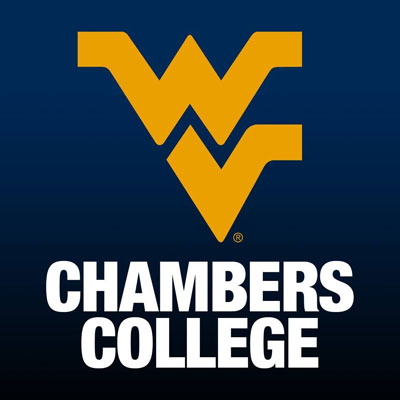There’s nothing more the supply chain management competition team from West Virginia University wanted on October 15 than to keep the Race to the Case crown in Morgantown.
That goal became a reality for the four-member team from WVU, as two students each from the College of Business and Economics and the Statler College of Engineering and Mineral Resources again captured first place in the Race to the Case Supply Chain Management competition at the University of Pittsburgh. The win in a field of seven teams from four universities marks the second consecutive year WVU has won the event.
The competition is modeled after the Emmy award-winning TV show “The Amazing Race,” and incorporates teams comprised of both business and industrial engineering students. In the three years the competition has been held, WVU has won twice.
“It’s so exciting for the WVU team to have won this competition again,” said Dr. Ednilson Bernardes, associate professor of global supple chain management at B&E and faculty advisor of the supply chain team. “The talents of this Statler-B&E team are remarkable, and their ability to make intelligent, well thought-out decisions on the go is a tribute to both of these colleges and to WVU. The collaborative skills they exhibited were excellent.”
WVU’s winning team included Clay Chipps, a senior industrial engineering student from Morgantown; Denna Davari, a senior industrial engineering student from Charleston; Kristen Slater, a senior global supply chain management student from Wheeling; and Robert Tierney, a senior global supply chain management student from Erie, Pa. Chipps was also on last year’s championship team.
Bernardes said the competition is designed to mirror the real world, where global supply chain management professionals and industrial engineers are faced with solving problems. They must rely on the talents of each team member and demonstrate teamwork — all in a timely manner.
“To have the team from WVU win this competition for the second straight year speaks volumes about the quality of our students and their educational experience,” said Kenneth R. Currie, chairperson and professor, Department of Industrial and Management Systems Engineering at the Statler College. “The competition allows engineers to work side-by-side with their colleagues in the business school, which mimics what they will face in the real world. It’s a great proving ground for our students and I’m incredibly proud of their success.”
Teams had an hour to complete the challenge provided in the first round and arrive at the next location, and then had an hour to complete the second round challenge and arrive at the next location. Only three teams with the highest scores from the first two rounds advanced on to the third and final round. In the final round, teams are challenged to prepare a presentation for a panel of judges in response to questions that might be asked in an executive management setting. Penn State placed second in the competition, while Pitt placed third. The University of Illinois also participated in the competition.
The Global Supply Chain Management curriculum began as an area of emphasis in 2014, with four core courses anchoring the program. After approval by the WVU Board of Governors earlier this year, the program was added as a full academic major starting with the Fall 2016 semester in August. Supply chain competition team member Kristen Slater said that makes two wins at the competition all the better.
“Winning this competition and representing WVU at the University of Pittsburgh was amazing and fulfilling,” she said. “The Global Supply Chain Management program is just starting up here it feels great to put us on the map. Clay, Denna and Robert were all great team members who are extremely bright and able to think quickly and critically. We all clicked together from the start and had great team chemistry. This experience put us in a situation with real world issues where you have to make a judgement call for your company and justify your actions in front of a board of directors. No matter what career path we take, we will have to make judgement calls all the time — sometimes under high pressure like this competition challenged us to do.”
Bernardes added that the U.S. and other countries are already seeing major improvements in the revitalization of manufacturing, and that there is currently a strong demand for talented college graduates who know how to get goods and services to the geographical locations where they are needed. That demand, he said, will prove beneficial for students just like members of the WVU team. Cross-functional cooperation and teamwork, he said, will continue to challenge professionals, and students, as digital manufacturing starts to reshape supply chains.
Part of the team had just returned from the global General Motors supply chain competition, where they represented WVU well. Statler’s Chipps and B&E’s Tierney participated in the General Motors/Wayne State University Supply Chain Competition earlier this month, when they were challenged, through a realistic case study designed by GM, to source a critical item as part of the development of an electric and autonomous vehicle.
“During a trip to the GM plant in Detroit, our students recently had the opportunity to see critical demands first-hand when hurricane Matthew hit a GM supplier in the south,” Bernardes said, “getting multifunctional teams scrambling to solve the potential disruption to a production line. Therefore, there is a growing need to incorporate this reality in our curriculums. It is becoming critical that our students have an understanding about how their work and decisions impact other functional areas, so they can interact effectively and function successfully in teams. Valuable, organized experiential learning opportunities such as this extend the educational experience of our students.”

